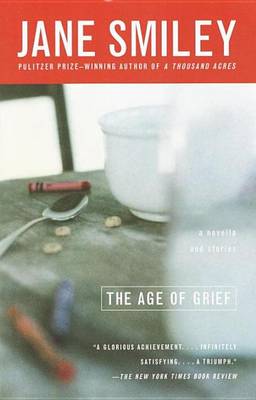Flamingo S.
2 total works
In “The Pleasure of Her Company,” a...Read more
In “The Pleasure of Her Company,” a lonely, single woman befriends the married couple next door, hoping to learn the secret of their happiness. In “Long Distance,” a man finds himself relieved of the obligation to continue an affair that is no longer compelling to him, only to be waylaid by the guilt he feels at his easy escape. And in the incandescently wise and moving title novella, a dentist, aware that his wife has fallen in love with someone else, must comfort her when she is spurned, while maintaining the secret of his own complicated sorrow. Beautifully written, with a wry intelligence and a lively comic touch, The Age of Grief captures moments of great intimacy with grace, clarity, and indelible emotional power.
From the author of the Pulitzer-winning A Thousand Acres, two novellas which showcase Jane Smiley's unique gift for capturing the nuances of American domestic life.
`I have given my children the two cruellest gifts I had to give... the experience of perfect family happiness and the certain knowledge that...
Read moreFrom the author of the Pulitzer-winning A Thousand Acres, two novellas which showcase Jane Smiley's unique gift for capturing the nuances of American domestic life.
`I have given my children the two cruellest gifts I had to give... the experience of perfect family happiness and the certain knowledge that it could not last.' So says the narrator of Ordinary Love, the first of two thematically linked novellas, each investigating the dream of the perfect family.
Ordinary Love gives voice to a mother, loving but unsure of her love's value. In forfeiting her powerful husband she fears that she has done her children - insecure Joe; restless Michael; cynical Ellen - irrevocable harm.
Good Will, by contrast, is the story of a father, a relentlessly self-sufficient man determined to live apart from a coarsely materialistic world. In his singlemindedness, he does not see the damage he is causing until it is too late: his domestic idyll explodes in a frenzy of discontent.
Together, the novellas raise a multitude of questions - about being a parent and being a child; about the desire to control other people and the need to compromise.


